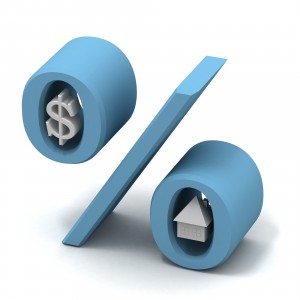 Keep these tips in mind when pricing your home, so you won’t be blindsided before you get to closing.
Keep these tips in mind when pricing your home, so you won’t be blindsided before you get to closing.
Unless you’re selling your home for all cash, there will likely be an appraisal involved in the transaction. And when an appraisal comes in low, it can create complications. Often times, the contract will need to be renegotiated, to reflect the appraised value, or some other concession will need to be made. The deal can be cancelled all together. Or, you may be able to contest the appraiser’s findings, if you can show the appraised value is inaccurate.
Before you jump to any conclusions, however, it’s important to know some of the factors that may go into an appraiser’s final number. Some of these aren’t immediately apparent to most home sellers, but they are all valid considerations for an appraiser.
- Proximity
Similar properties closer to home make better comps. So, if an appraiser can find the same/similar floor plan, of a similar size and age in the same neighborhood, vs. a neighborhood a mile or more away, the closer comp will almost always be used. - Square Footage Adjustments
Sometimes, the best comp is one that’s similar in age/layout/upgrades, but just slightly larger or smaller than the subject. At that point, the appraiser has to adjust the value of the comp up or down based on a formula they have, or that the bank recommends. That means the value could go up or down by $65, $75, $85 per square foot, right off the bat. It all depends on the dollar amount the appraiser uses to offset the difference in square footage. - Features
This is an obvious one, but a similar home with more upgrades than the subject (higher end counter tops, cabinetry, appliances and the like) will impact the appraised value of the home. - Seller Concessions
Less obvious is the presence of seller concessions. A comparable home may show a sales price of $200,000, but what may not be apparent via many public-facing websites (Zillow, Realtor.com, etc.) are any seller concessions. This can be money the seller paid toward closing costs, repairs, decorating allowances or other categories. New home builders are well known for providing assistance with closing costs to buyers. So, while the sale price may be $200,000, appraisers are also taking into account those seller concessions, which means the “real” sale price may be closer to $195,000 or even less. - Non-Conforming Bedrooms
Sometimes, a home will be marketed as having 4 bedrooms, when really only 3 bedrooms conform to building code. Here in Florida, bedrooms typically require a closet, a door or “entrance where a door may reasonably be installed”, as well as a means of exit in event of an emergency (typically a window). So, you can see why sometimes a bonus room or a den/office is marketed in a listing as a bedroom. If there’s no closet or window/exit, however, an appraiser will likely determine the home has only 3 bedrooms, and assess the value accordingly.
Many appraisals go smoothly and without issue. However, by knowing what an appraiser will be looking for from the get go, you can be sure you, and your agent, are pricing your home accordingly from the start, and you won’t be blindsided by a low appraisal once you’re under contract.

Leave a Reply